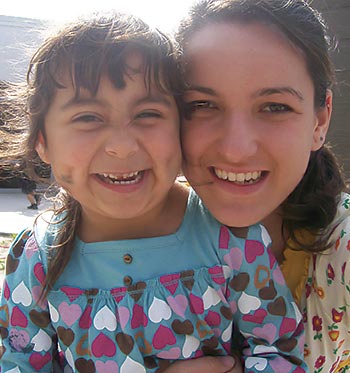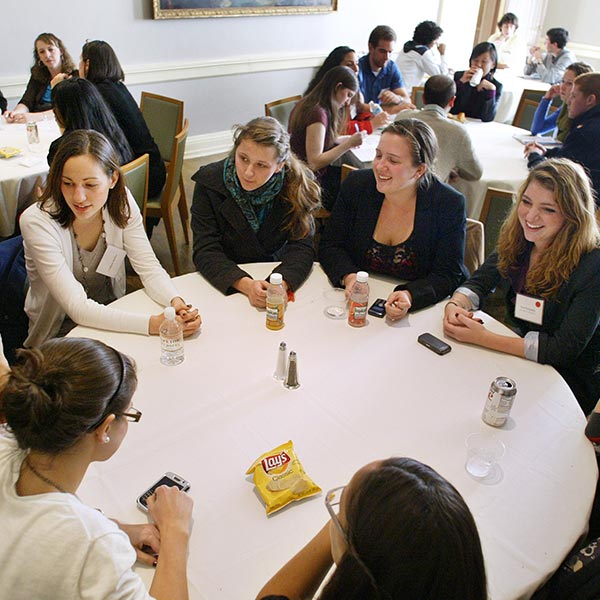Subtotal: $
Checkout-

Sending Messages into the Future
-

Seizing Moments of Awe
-

Daring to Sing
-

Setting the Table at Koinonia Farm
-

Discovering Reverence
-

Schooling Me, the Surgeon
-

Insights on Childhood
-

What’s the Point of a Christian Education?
-

Every Child Is a Thought of God
-

Kindergartners Are Human Beings
-

Charity Is No Substitute for Justice
-

Digging Deeper: Issue 3
-

Should Christians Abandon Public Schools?
-

Why I Homeschool
-

Why Dads Matter
-

Jesus’ Surprising Family Values
-

Letter from the Texas-Mexico Border
-

Noah: A Wordless Story
-

Reclaiming a Literary Giant
-

Editors’ Picks Issue 3
-

Does ISIS Prove Nonviolence Wrong?
-

Blood and Ink
-

Dispatch from Ferguson
-

Soldier of the Lamb: What I Learned from Larry
-

Carol of the Seekers
-

Readers Respond: Winter 2015

Next Article:
Explore Other Articles:
Working with the Humility of Mary
For decades, the Humility of Mary Volunteer Service has been faithfully deploying volunteers to areas of need. Catholic sisters work alongside young people as they grow into their place of service in inner-city neighborhoods and migrant communities. Volunteers live simply and communally, sharing with their coworkers, fellow volunteers, and the nuns in the field or at Villa Maria, the community center in Pulaski, Pennsylvania. Stepping out of college for a few weeks, a year, or longer, volunteers find themselves immersed in work more challenging and fulfilling than any academic course: community outreach, women’s issues, farming, literacy projects, refugee support, and legal aid, to name a few.
Aside from practical guidance and counsel, anyone who signs up for this program can count on another benefit. They will join a growing list of names which the elderly nuns at Villa Maria peruse daily, so as to be specific in their intercessory prayers, a task they’ve taken on after years of active service.

Already a subscriber? Sign in
Try 3 months of unlimited access. Start your FREE TRIAL today. Cancel anytime.
Spreading Love and Fidelity on Campus
Pop culture and even professors are telling college students that personal happiness is the greatest good, that anything goes, and that marriage is outdated. Is anyone telling them the truth: that true fulfillment is found through living lives of sexual integrity and in the commitment of lifelong marriage? That is the core mission of the Love and Fidelity Network. Founded in response to the one-sided conversation about matters concerning marriage, family, and sexuality at Princeton University in 2007, LFN now has a presence on more than two dozen college campuses.
Rooted in the belief that “the flourishing of society depends on healthy family lives and stable marriages,” the network includes students, graduates, instructors, and others committed to sexual integrity and the importance of marriage and family life. Through poster campaigns, student organizations, speaker events, and national conferences, they equip students to encourage their peers to embrace “a healthier and more responsible way of living out their sexuality, and prepare for their own future marriages and families.”

Already a subscriber? Sign in
Try 3 months of unlimited access. Start your FREE TRIAL today. Cancel anytime.
Babies against Bullying
When Mary Gordon of Toronto founded Roots of Empathy in 1996, she had a far-reaching goal: “to build caring, peaceful, and civil societies through the development of empathy in children and adults.” But she observed that her best anti-bullying teacher did not have a degree in sociology. How could he? He was only three months old.
In the Roots of Empathy program, a parent and baby from the community visit a classroom nine times over the course of a school year. A program instructor accompanies the family to guide children as they observe the loving relationship between baby and parent, and note how the baby is growing and changing over the course of the year.
Children learn to understand the baby’s perspective and feelings, and can extend their learning toward a better understanding of their own feelings and those of others. This emotional literacy lays the foundation for more safe and caring classrooms. Children who are socially and emotionally competent are much more likely to challenge cruelty and injustice, and stand up for the defenseless. Teachers and instructors have documented amazing long-term changes in children’s behavior. As the prophet Isaiah wrote over 2500 years ago, “A little child shall lead them.”
Already a subscriber? Sign in
Try 3 months of unlimited access. Start your FREE TRIAL today. Cancel anytime.
Already a subscriber? Sign in
Try 3 months of unlimited access. Start your FREE TRIAL today. Cancel anytime.



































